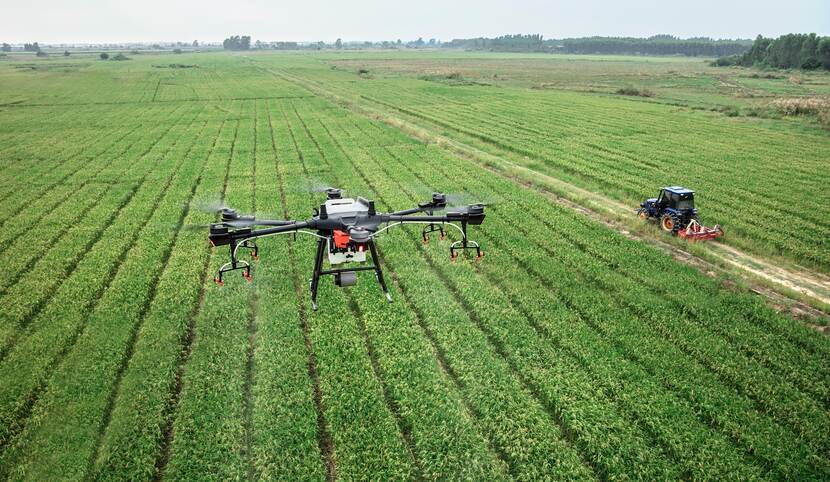Kazakhstan develops digital map of agricultural lands
Mayors of Kazakhstani cities were instructed to complete the development of a traceability system in crop production by 1 September.

Prime Minister of Kazakhstan Olzhas Bektenov instructed to build a transparent sales chain of products from their origin to the final consumer during a government meeting on February 11.
"At the first forum of agricultural workers, the head of state set the task of digital transformation of the agro-industrial complex. In this regard, the government pays special attention to the introduction of elements of smart technologies in all sectors of agriculture. Specific goals and key areas have been identified. Through the use of digital tools, it is necessary to ensure the accuracy of data on financial needs, reporting, acreage, and livestock numbers. Digitalisation should help to increase the transparency and effectiveness of government support measures. It is important to implement IT tools in accounting for agricultural land," he said.
It is necessary that their digitisation contribute to the rational use of land and pastures, balanced planning of sowing operations. In this regard, it is necessary to use space monitoring of all farmlands more widely and use drones, the Prime minister stressed.
"Another important issue is the identification system for livestock and crop production. It is necessary to build a transparent product distribution chain from its origin to the end user. First of all, this system should be focused on accounting for manufactured products, ensuring their quality, and monitoring biological and veterinary safety. It is necessary to make greater use of digital solutions and artificial intelligence in forecasting climate risks, crop yields and market prices for food," Olzhas Bektenov emphasised.
In addition, thanks to the use of artificial intelligence, it is necessary to optimize the processes of irrigation, the use of plant protection products and fertilizers, feed consumption, and fleet management of agricultural machinery.
"Today, the problem of accuracy of statistical data in the fields of animal husbandry, crop production, accounting for grain and product stocks in stabilisation funds and storages, determining soil moisture and ensuring veterinary safety remains urgent. All these issues should be resolved through the complete digitalisation of the data accounting system," he added.

To achieve these goals, it is necessary to encourage the involvement of domestic IT companies to develop innovative solutions in the field of agriculture.
"I also instruct the Ministries of Agriculture and Digital Development to do the following: First, together with the administrations of the regions, by the end of the year, develop a digital map of agricultural land. Secondly, administrations should complete the development of a traceability system in crop production by September 1 of this year. Third, on behalf of the head of state, it is planned to conduct a national agricultural census this year. Based on the results of the census, the results should be fully digitized and analysed, and then the resulting database should be constantly updated," the Prime minister concluded.
Recall that today it became known that 714 million tenge is needed to digitize the field of crop production. The information system is undergoing technical testing in the Akmola region.
Dmitry Moon, Vice Minister of Digital Development, said that they plan to introduce AI agents to automate processes in agriculture. The industry will use chatbot assistants, drones, and intelligent analysis systems.
By Botagoz Iskakov for Kapital (Kazakhstan).